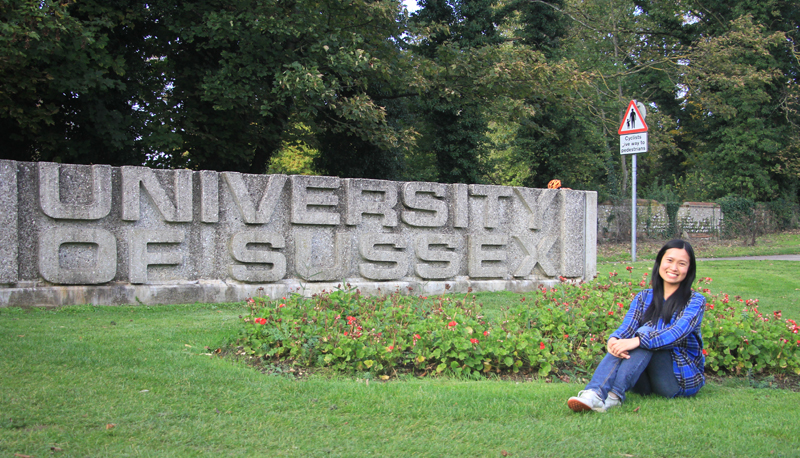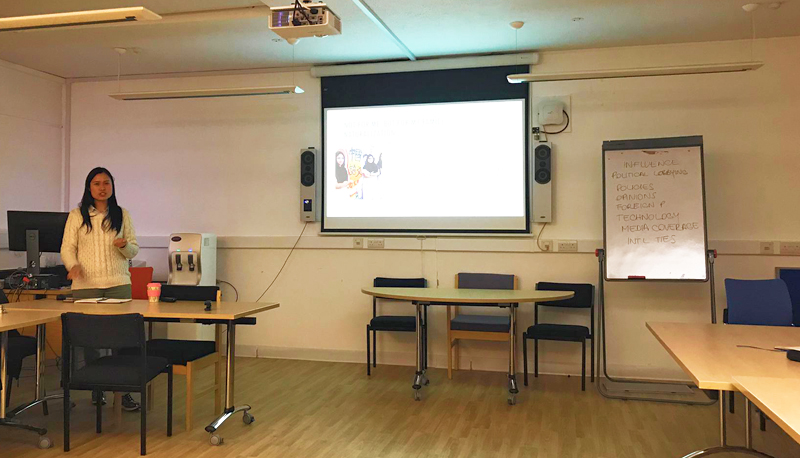
Extending the boundary: Migrant research student visits University of Sussex

Gigi has a fruitful research visit at the University of Sussex.
To become a good researcher is not only about spending numerous hours in libraries and laboratories. One also needs to get hands-on experience in their research projects. Supported by the Global Scholarship Programme for Research Excellence, PhD student Gigi Lo from the Department of Sociology has just returned from a 3-month visit to the Sussex Centre for Migration Research in the University of Sussex (Sussex), UK. With a research focus on the choice of citizenship for Pakistanis previously residing in Hong Kong, let’s find out how the visit has benefited Gigi’s project.
• How did the exchange at Sussex facilitate your research project?
I carried out fieldwork during the research visit. I am doing a research project on citizenship acquisition of Hong Kong Pakistanis. Pakistanis who migrated from Hong Kong to the UK are the targets of my study. The 3-month visit allowed me to travel around the UK and interview my respondents in person.
• What were your achievements during the visit?
I attended seminars and academic conferences, and audited lectures at Sussex. These activities have enriched my knowledge in migration studies and allowed me to learn about the recent discussions in the field. I completed 16 face-to-face interviews in seven UK cities plus two interviews online. I presented my research progress among PhD students and drafted a conference paper. I also got to know several outstanding PhD students and invited one of them to form a panel with me in an academic conference.
• Any special experiences in your research visit that you can share about?
My study focuses on migrants. However, I did not have any experience of living abroad for more than a month before this research visit. During my visit in the UK, I had become a ‘migrant’ myself. This allowed me to gain the perspective of a migrant and better understand my respondents. Besides, I am able to compare the situation of migrants in Hong Kong and those in other countries with enlightenments from other PhD students from other parts of the world. This understanding has helped me to review my research project thoroughly and look at it in a global context.
• Do you have tips for research students who are interested in undertaking short-term research attachment abroad?
I would suggest the candidates to have some good planning before the trip. Plan ahead and tell their host supervisors what they want to achieve during their trips. In my case, I told my host supervisor that I would like to attend academic activities focusing on migration studies. He then added me to the email group for migration studies so that I could receive all the information on the upcoming activities. Apart from this, meet more people and try new things!
Since 2007, over 400 awards have been given under the PhD Student Mobility Schemes organised by the Office of Academic Links to support PhD students to undertake research attachments at selected partner institutions overseas. For more information on the funding schemes offered to PhD students, please visit the website.

Gigi shares her research findings on the emotional process of Pakistanis’ citizenship acquisition in post-colonial Hong Kong in Sussex.